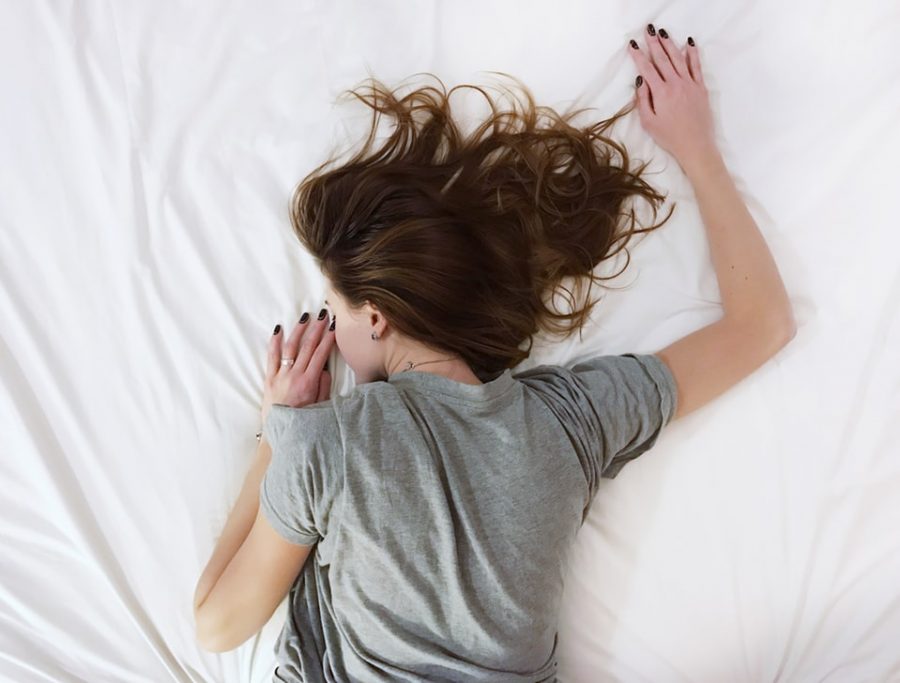Around one-third of our life is spent sleeping. Sleep begins in a portion of the brain called the hypothalamus, which begins a cascade of sleep-inducing changes in the body. Nerve cells in the brain reduce alertness and promote sleepiness, while electrical activity in the brain begins to slow. Sleep allows the brain and body to slow down and engage in processes of recovery, promoting better physical and mental performance the next day and over the long-term.
There are 3 parts to the normal sleep cycle
- Deep sleep: There are several stages of deep or quiet sleep, each becoming progressively more deep. There are 4 to 5 periods of deep sleep in a normal sleep cycle.
- Rapid Eye Movement (REM) sleep: In REM sleep the brain is very active. Apart form the eye movements , that give this sleep class its name, the rest of the body is very inactive. It is during REM sleep that dreaming occurs. There are 4 to 5 periods of REM sleep in a normal sleep cycle.
- Waking: Every 2 hours we experience short periods of waking for 1 to 2 minutes. These are more common nearer to waking -up time. We don’t usually remember these waking periods unless we are distracted by noise (TV, cars outside or a snoring bed-mate) or light. In these cases the waking period s extended and we may find it hard to resume sleep.
How much sleep is normal?
The amount of sleep we need varies depending on age and lifestyle. We normally find our ideal sleep pattern in early adulthood. Most people take less than 30 minutes to fall asleep.
As a rough guide
- Age 18 to 64 the normal amount of sleep is 7 to 9 hours
- Age 65 and over, this reduces by 1 hour to 7 to 8 hours
Is it ok to have a daytime nap?
A 30 minute nap is a good way to improve alertness, mood and activity. BUT it should not be used instead of poor night time sleep.
What can I do to get a better night sleep?
The bedroom environment is really important in promoting a good sleep. The room should be relaxing, cool, quiet and ideally should have no harsh light from televisions, tablets, computers, mobiles or bedside clocks.
Routine is important
This can include going to bed/getting up at the same time (even at weekends). Having a regular routine that includes a relaxing bath or shower, reading a book or meditation can help encourage a better night sleep.
Exercising can help sleep BUT the effect varies with each individual. Some people can do hard exercise just before bed and sleep well. Others may find this too stimulating and would need to have completed exercise several hours before bedtime. Work out the best time for you.
What should I avoid to get a better night’s sleep?
- Don’t take in stimulants close to bed time. These include caffeine, nicotine and sugary foods.
- Avoid playing computer games or watching an exciting programme just before bed.
- Stress can have a terrible effect on sleep – try and clear your mind before settling off to sleep. This may mean writing down plans for the following day, ensuring no emotional conversations just before bedtime or getting some help if anxiety or low mood is affecting your life.
- Doing relaxation exercises, gentle stretching or meditation before bedtime can help relax you and assist in a better night’s sleep.
- Excess alcohol will NOT help you sleep. It is true that small amounts of alcohol can help you get off to sleep, the body processes and clears the alcohol during the night and this leads to disrupted sleep in the early hours.
- Avoid large meals, rich or fatty food just before bedtime – these can lead to indigestion, bloating and needing to get up to use the toilet. These all can disrupt a good night sleep.
To book an appointment with one of our GPs, please call 0161 428 4464.


Recent Comments